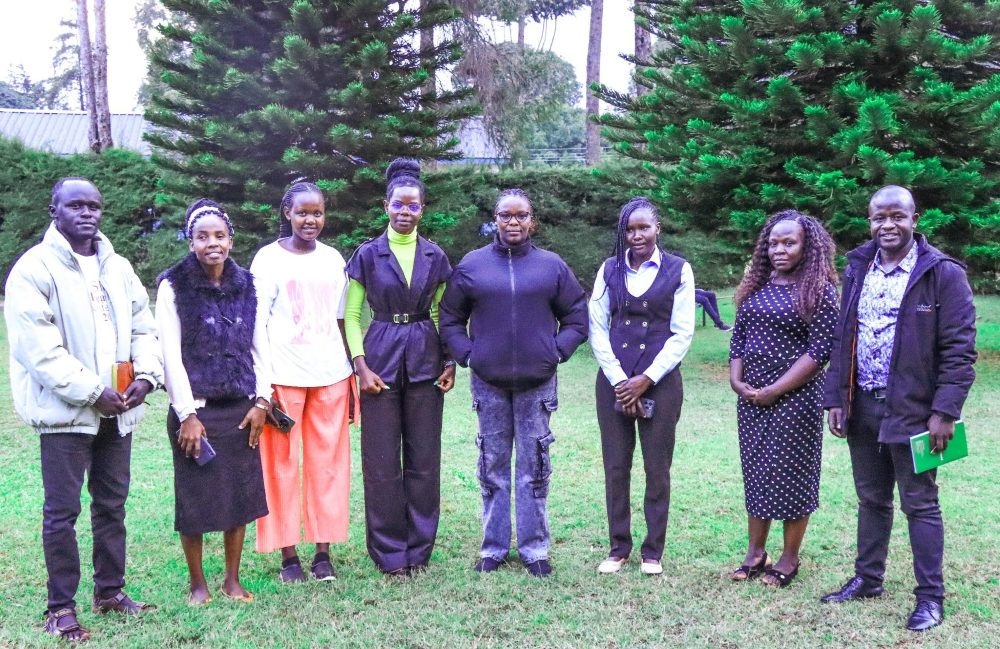There is a lot of hullabaloo about autonomy of junior school teachers from their hosting primary schools. The argument is that graduates can’t be supervised by P1 head teachers. Well, the debate is unsettling and heated. The reality is opposite.
In Kenya’s education system, few issues generate as much debate in staffrooms as the question of hierarchy between head teachers and graduate teachers. The argument often revolves around whether a P1 head teacher – a teacher whose highest professional qualification is a primary teacher’s certificate – should be in charge of graduate teachers who hold Bachelor of Education degrees.
Many perceive this as an anomaly, yet under the Teachers Service Commission (TSC) regulations, it is a legitimate and fully recognized administrative arrangement. Understanding why this is the case requires an exploration of the TSC’s appointment procedures, the distinction between academic qualifications and leadership and the structure of authority within schools.
The TSC is the constitutionally mandated body responsible for the recruitment, deployment, and management of all teachers employed in public institutions. According to the TSC Code of Regulations for Teachers (2015), the Commission appoints head teachers and principals based on specific criteria that include professional competence, administrative ability, experience, and performance, rather than solely on academic qualifications.
A head teacher’s position is considered an administrative appointment, not an academic promotion. This means that the appointment is based on one’s proven leadership capability and track record in school management. Once TSC formally appoints a teacher to head a school, that teacher assumes full authority over all staff within that institution – regardless of their academic level or job group.
Therefore, if a P1 teacher has been promoted through experience and demonstrated leadership to the position of head teacher, he or she is legally recognized as the institutional head. Any graduate teacher posted to that school becomes a subordinate staff member in the professional hierarchy, even though the graduate might possess higher academic qualifications.
ALSO READ:
CUE proposes university admission caps to tackle rising graduate unemployment
The misunderstanding arises from confusing academic qualification with administrative authority. A graduate teacher’s degree represents a higher level of academic achievement and may place them in a higher job group (such as C2 or C3), whereas a P1 head teacher might be in a similar or slightly lower job group. However, job groups mainly determine salary and benefits, not organizational authority.
In TSC’s structure, authority flows from appointment, not from one’s educational attainment. The appointment letter from TSC is what grants a teacher the mandate to lead, supervise and evaluate other teachers. A graduate teacher cannot override the authority of a P1 head teacher unless the Commission appoints the graduate to a higher administrative role.
The situation is not unique to the teaching profession. In many government departments, officers with lower academic qualifications often serve as supervisors to those with higher ones if they hold an official appointment. Leadership is thus tied to responsibility, trust and competence, not merely to certificates.
TSC recognizes that leadership in schools, especially at the primary level, requires more than just academic knowledge. Many P1 teachers have decades of classroom experience and deep understanding of community dynamics, learner behavior, and institutional culture. They have undergone numerous in-service training courses, including the Teacher Professional Development (TPD) program and the School Leadership Programme offered by the Kenya Education Management Institute (KEMI). These courses are designed to equip head teachers with practical leadership and administrative skills.
Furthermore, many rural and developing areas in Kenya still have limited numbers of graduate teachers. In such contexts, TSC must ensure that learning continues smoothly by appointing competent and experienced P1 teachers as heads. Their leadership ensures stability and continuity in school management.
While the structure is legitimate, it often creates emotional and professional tension in schools. Graduate teachers may feel undervalued or underutilized when reporting to a head teacher with lower academic qualifications. Conversely, some P1 head teachers may feel intimidated or insecure when supervising degree holders.
ALSO READ:
Former Harambee Stars coach Francis Kimanzi mentors young talent at Kabarak Soccer Academy
To manage this dynamic, both parties must understand that school leadership is a service, not a competition. The head teacher’s role is to coordinate, guide, and ensure effective teaching and learning. Graduate teachers, on the other hand, bring fresh ideas, advanced pedagogical approaches, and subject mastery that can enrich the school’s performance. When mutual respect and professionalism prevail, both can work harmoniously toward shared institutional goals.
TSC, through the Performance Appraisal and Development (PAD) tool, encourages collaborative work and peer support among teachers. The focus is on learner achievement and professional growth, not hierarchy. Therefore, even though a P1 head teacher leads the school, he or she should value the input of graduate teachers and delegate responsibilities appropriately.
It is also important to note that a P1 head teacher’s qualification does not permanently limit their career progression. Many P1 head teachers have, over time, pursued further studies and earned degrees or diplomas while in service. TSC supports continuous professional development, and teachers who improve their qualifications can be reclassified and even promoted to higher administrative levels, such as Deputy Principal or Principal positions in junior secondary or secondary schools.
Similarly, graduate teachers who aspire to headship positions must not only rely on their academic credentials but must also demonstrate leadership potential, discipline and commitment. The Commission looks for teachers who have consistently shown good performance, teamwork, and the ability to maintain discipline and accountability in their institutions.
The belief that a P1 head teacher cannot be in charge of a graduate teacher is a misconception. Under TSC regulations, leadership in a school is determined by appointment, not by academic qualification. Once a teacher is appointed as head, he or she assumes full administrative authority over all staff within the school, including those with higher educational levels.
This structure reinforces the principle that leadership is about service, competence and responsibility, not mere credentials. What matters most in a school is teamwork, mutual respect, and a shared vision for learner success. A P1 head teacher who leads with integrity and professionalism can effectively manage graduate teachers and steer the school to excellence, proving that leadership is truly a matter of capacity – not just certificates.
By Ashford Kimani
Ashford teaches English and Literature in Gatundu North Sub-county and serves as Dean of Studies.
You can also follow our social media pages on Twitter: Education News KE and Facebook: Education News Newspaper for timely updates.
>>> Click here to stay up-to-date with trending regional stories
>>> Click here to read more informed opinions on the country’s education landscape






